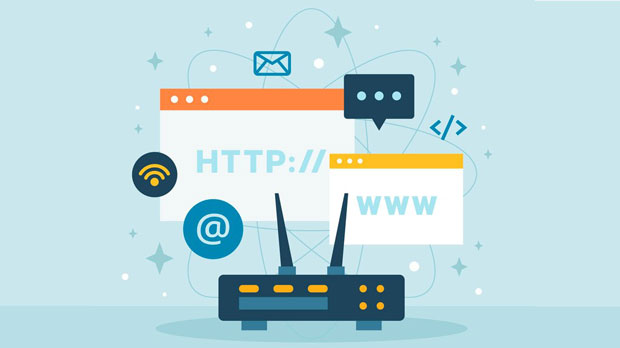In today's fast-paced digital world, enterprises require seamless access to a variety of web resources, applications, and services. A Cache Proxy can significantly enhance network performance, reduce latency, and ensure the efficient delivery of web content by caching frequently accessed data. When integrated into an enterprise’s existing network architecture, it acts as an intermediary between the client and the server, optimizing response times and decreasing the load on the backend systems. This article will provide an in-depth exploration of how a Cache Proxy can be effectively integrated into an enterprise’s network architecture, offering practical insights and valuable recommendations for enhancing performance and user experience. 1. Understanding the Role of a Cache Proxy in Network OptimizationBefore diving into the integration process, it’s essential to first understand the core role that a Cache Proxy plays within a network. A Cache Proxy essentially stores copies of frequently accessed web resources (such as web pages, images, or files) closer to the end users. This reduces the need for repeated requests to the original server, enhancing speed, efficiency, and bandwidth usage. By serving cached content, a Cache Proxy can significantly reduce latency and decrease the load on backend servers.The integration of a Cache Proxy can be particularly beneficial for organizations dealing with large volumes of web traffic. It ensures that users get faster responses to their requests, regardless of the distance from the original server. In addition, it can improve overall network reliability by reducing the risk of server overloads and minimizing downtime.2. Assessing the Current Network ArchitectureThe first step in integrating a Cache Proxy is evaluating the existing network architecture. This includes mapping out the current network infrastructure, identifying key network components, and understanding the flow of data between servers, clients, and other resources. A thorough assessment will allow network engineers to determine the best placement for the Cache Proxy, ensuring optimal performance and minimal disruption to the existing setup.Key areas to focus on during this evaluation include:- Network Traffic Patterns: Understanding the types of traffic (e.g., HTTP requests, video streams, downloads) helps determine which content would benefit from caching.- Server Load and Performance: Identifying backend servers with heavy loads can guide the placement of the Cache Proxy to reduce strain on these systems.- Security Considerations: Any security protocols, firewalls, or data privacy concerns must be taken into account when placing a Cache Proxy in the network.By performing a comprehensive network assessment, organizations can ensure that the Cache Proxy is integrated in a way that enhances, rather than disrupts, existing operations.3. Choosing the Right Cache Proxy SolutionOnce the existing network architecture is assessed, the next step is selecting the appropriate Cache Proxy solution. Several factors need to be considered when making this choice:- Scalability: The Cache Proxy solution must be scalable to accommodate future growth in network traffic and storage requirements.- Compatibility: It should be compatible with the existing network protocols, including HTTP, HTTPS, and any other relevant standards.- Cache Policy and Configuration: Enterprises should select a Cache Proxy that allows for fine-grained control over caching policies. For example, administrators can set rules regarding cache expiration times, content freshness, and the types of content that should be cached.- Security Features: It’s crucial to ensure that the Cache Proxy solution includes robust security features such as encryption and access control to prevent unauthorized access to cached content.By selecting a Cache Proxy that meets the specific needs of the organization, enterprises can maximize the benefits of caching without compromising security or performance.4. Deployment and Integration ProcessThe deployment and integration of a Cache Proxy into an existing network should be done in a phased manner to minimize disruption and ensure compatibility with existing systems. The process can be broken down into the following steps:- Step 1: Installing the Cache Proxy: The first step is to install the Cache Proxy software or hardware appliance. This can be done either on-premises or in a cloud-based environment, depending on the organization’s preferences and infrastructure. - Step 2: Configuring Cache Settings: After installation, the Cache Proxy must be configured to define the caching policies, such as cache duration, cacheable content types, and cache expiration times. This configuration will ensure that the Cache Proxy optimally stores and serves content. - Step 3: Integrating with the Network: The Cache Proxy must be integrated with the existing network infrastructure. This includes setting up the proxy server between the clients and backend servers, ensuring that the Cache Proxy intercepts requests and serves cached content as needed. - Step 4: Testing and Monitoring: Once the Cache Proxy is integrated, thorough testing should be conducted to ensure that it performs as expected. Network performance monitoring tools can be used to track response times, cache hit rates, and overall system performance.By following a structured deployment approach, organizations can ensure a smooth integration with minimal downtime and disruptions to end users.5. Monitoring and Performance OptimizationAfter the Cache Proxy is deployed, it is crucial to monitor its performance continually. Real-time monitoring helps identify issues such as cache miss rates, high response times, or increased server load. Tools like traffic analyzers, log analyzers, and monitoring software can help track Cache Proxy performance and optimize its configuration over time.Key performance indicators (KPIs) to monitor include:- Cache Hit Rate: This indicates the percentage of requests served from the cache. A high cache hit rate signifies that the Cache Proxy is effectively reducing load on backend servers.- Response Time: Monitoring the response time of cached content can help ensure that users are receiving fast, reliable service.- Cache Storage Utilization: Regular monitoring of cache storage helps ensure that there is enough space for cached content and that outdated content is appropriately cleared.Based on the performance data, adjustments can be made to caching policies, infrastructure, or Cache Proxy placement to optimize the system’s performance.6. Security and Compliance ConsiderationsWhile deploying a Cache Proxy can significantly improve performance, it is essential to address any security concerns. Caching sensitive data or personal information could lead to security risks if not properly managed. To ensure secure integration, enterprises must:- Implement encryption for both cached content and communication between the Cache Proxy and backend servers.- Use access control mechanisms to restrict access to cached data and prevent unauthorized users from manipulating the cache.- Regularly audit the cached content to ensure compliance with data protection and privacy regulations.By addressing these security considerations, enterprises can enjoy the benefits of a Cache Proxy without compromising sensitive data or violating compliance standards.Integrating a Cache Proxy into an existing enterprise network can significantly improve performance, reduce latency, and optimize resource usage. By carefully assessing the current network architecture, selecting the right Cache Proxy solution, and following a structured deployment process, enterprises can enhance the user experience while ensuring smooth network operations. Continuous monitoring and optimization are key to maintaining long-term performance gains. With a strong focus on security and compliance, organizations can confidently leverage Cache Proxy technology to meet the growing demands of today’s digital landscape.
May 16, 2025






















































